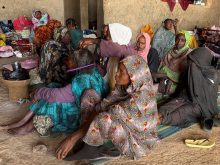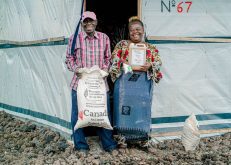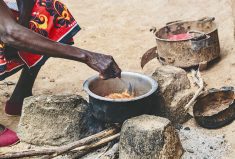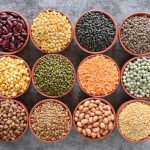Just keeping track of the offers of help would likely keep the eight members of the Taber Foodgrains Project’s organizing committee busy.
“There’s probably close to 100 organizations that help out in some way, shape or form,” said Jeremy Wind, the group’s chair.
“We had no challenges getting people to help out. There’s always a long list of people wanting to harvest.”
Read Also
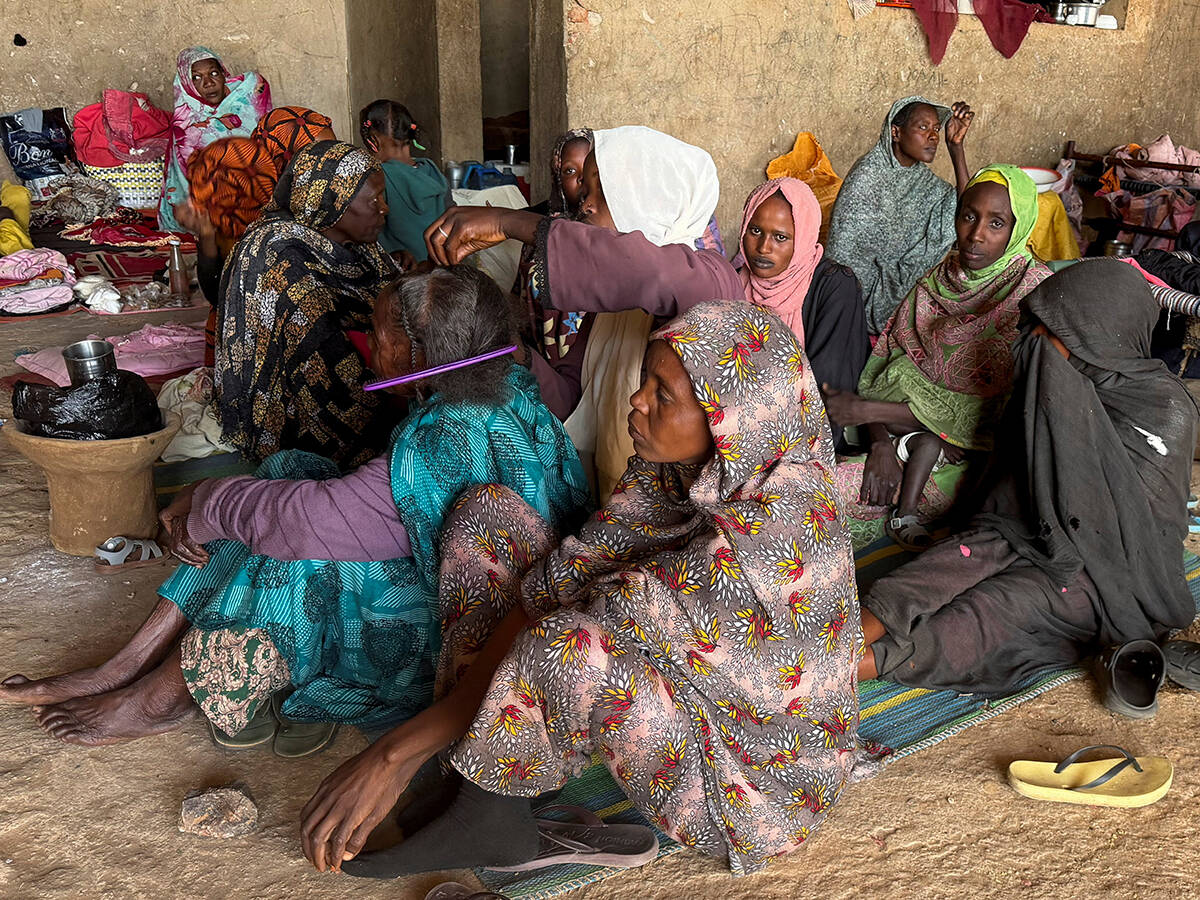
‘Millions will die’: Foodgrains Bank faces $2.7B federal funding threat
Foodgrains Bank warns $2.7B aid cut triggers a humanitarian crisis, risking global hunger relief and 40 per cent of its funding.
Tallying up all the money the group has raised with its growing projects and other fundraisers for the Canadian Foodgrains Bank takes time, too.
“We’re close to $20 million, including the (four-to-one) matching from the government, in our 26 years,” said Wind.
There are hundreds of growing projects across the country, including 28 in Alberta this year – many of which, like the one in Taber, have become generational affairs.
Collectively, volunteers in the province raised $2.2 million from growing projects and other community fundraisers last year (in a virtual tie with Manitoba and Ontario). Although the final tally isn’t in yet, a similar amount will be generated this year.
The Taber Foodgrains Project raised $130,000 this year by growing 135 acres of barley and selling it to local feedlots.
“The growing year was really good. We had a good crop,” said Wind, noting the amount raised will be supplemented by donations from community members, more than 200 of whom came out for a big barbecue on harvest day in mid-August.

However, because of economic pressures, the group has had a few challenges.
“The inputs were definitely higher than normal, especially fertilizer, and rent was higher than normal,” said Wind, who grows potatoes, forages and grains on his farm. “When it comes to cash donations, we’re lower than other years. We’re having an easier time getting people to come out and plant, harvest, and that kind of thing.
“When it comes to cash donations, something we normally get quite a bit of, it’s been down the past two years.”
Finding land to rent is the biggest hurdle.
“It’s getting worse because of the intensity of agriculture in this area, with commodity prices being higher,” said Wind. “It’s hard to find guys that will give up a piece of land to let us do the project.”
But the sharp rise in the price of grains, oilseeds and other crops has also made the work of groups like the Taber Foodgrains Project even more vital, said a Foodgrains Bank spokesperson. The organization, a partnership of 15 churches and church agencies, provides emergency aid and funds projects to assist farmers in developing nations.
“We’ve definitely seen an increase in hunger this year,” said Christina Phillips. “We’re looking at 828 million people that are facing hunger. There are various degrees of the severity of hunger that they are facing. About 50 million people in 45 countries are teetering on the brink of famine.”
[RELATED] Manitoba Co-operator: Hunger crisis deepening, says Canadian Foodgrains Bank
Climate disasters have hit some countries on a nearly unprecedented scale in the past year.
Ethiopia, Eritrea, Somalia, the South Sudan and parts of Kenya are experiencing the worst drought in four decades. In Pakistan, summer rains that were as much as five times greater than normal left more than a tenth of the country under floodwaters for weeks, affecting more than 33 million people and killing more than one million livestock.
And the food emergency dollar doesn’t stretch as far these days.
“Food inflation prices are quite high,” said Phillips. “Some of the countries in which we work, vendors that we have worked with, can no longer guarantee prices (for food) because inflation is so severe within the short term.”

During its last fiscal year, the Foodgrains Bank provided assistance to nearly one million people in 34 countries. That work wouldn’t be possible without Canadian producers, said Phillips.
“Farmers have really been the backbone of support for the Canadian Foodgrains Bank since its inception. It was founded by farmers wanting to do something,” she said.
“Many of these growing projects, which are communities that come together, have been going on for two decades or longer. They continue to be supportive, and they continue to really work no matter what is happening in their own lives.”
That dedication and commitment also makes a difference when the organization goes to other funders, such as the federal government, which recently gave the Foodgrains Bank $14 million to provide emergency aid in the Horn of Africa.
“Our supporters have been so loyal through the years, it’s why the Canadian government chooses the Canadian Foodgrains Bank along with the integrity of the work we do,” she said.
“And when we can provide access to food in the various ways that we do, it tells people that people care for them. That is an important aspect.”
Farmers and others who support growing projects are simply generous people, she added.
“They are going to work hard for people who they may never see, but whose lives will be greatly, positively impacted because of the work they are doing.”




